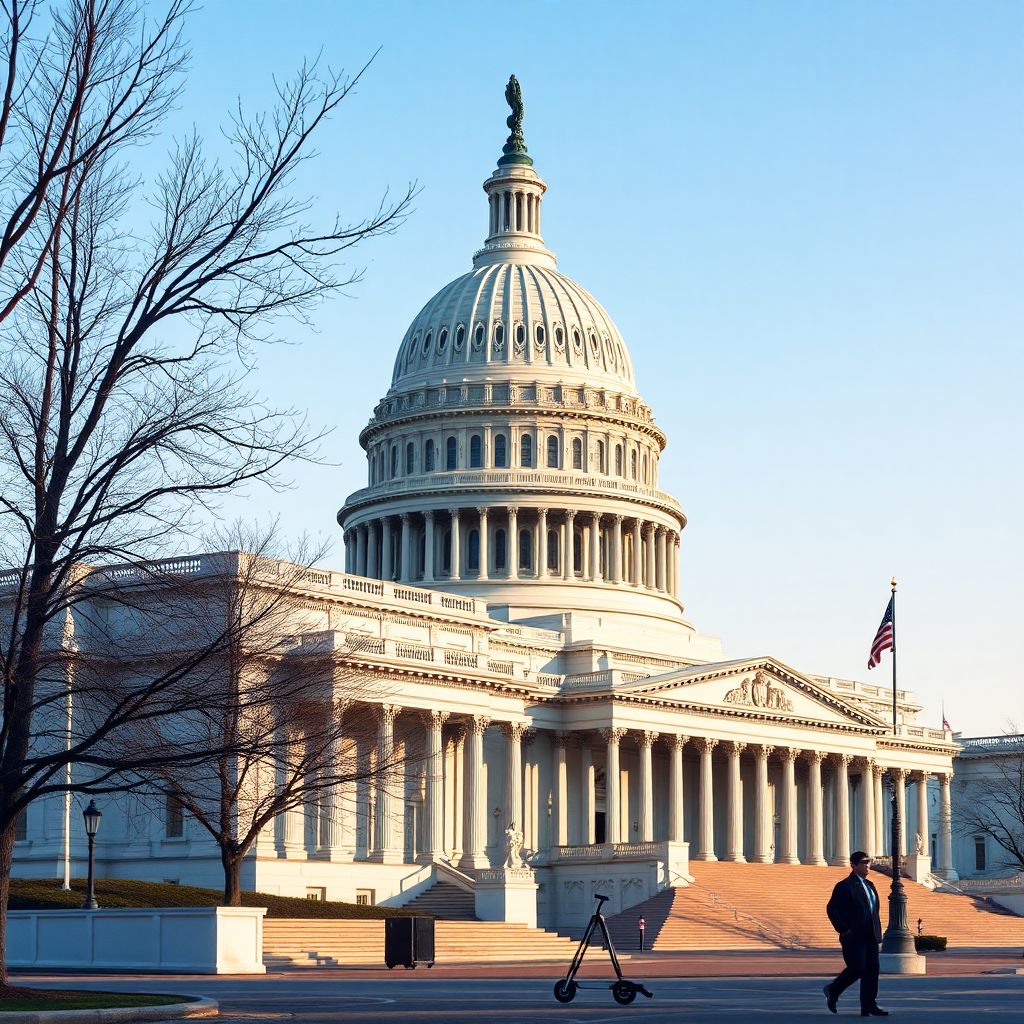U.S. Government Shutdown Pushes Crypto Legislation Timeline to 2026
The prolonged U.S. government shutdown is having far-reaching consequences, including significant delays in the advancement of cryptocurrency legislation. Ongoing political deadlock in Washington, driven by internal party conflicts and stalled negotiations, has effectively placed key crypto regulatory initiatives on hold—possibly until 2026.
As the shutdown drags on, cracks are forming within the Democratic Party, which had initially presented a united front. While some Senate Democrats are actively seeking bipartisan solutions to reopen the government, others insist on maintaining pressure for a comprehensive deal that includes the extension of Affordable Care Act (ACA) subsidies. This internal division is weakening the party’s bargaining position and complicating efforts to end the impasse.
Senator Dick Durbin recently acknowledged the growing public frustration, noting that “people are tired of this shutdown and all that flows from it.” Behind the scenes, moderate Democrats are exploring compromise solutions, while others remain committed to holding out for long-term health care guarantees. Meanwhile, House leaders remain steadfast in their demands for clarity on ACA funding extensions, further stalling negotiations.
On the Republican side, discord is equally evident. Senator Susan Collins is advocating for a government funding deadline of December 19, aiming to avoid further disruption during the holiday season. However, more conservative lawmakers are pushing for a longer extension into January, prioritizing fiscal restraint over immediate resolution. This internal conflict has made it difficult for the GOP to present a unified proposal.
The shutdown, now among the longest in U.S. history, is beginning to affect sectors far beyond federal agencies. The digital asset industry is now feeling the pressure, with legislative efforts related to crypto regulation grinding to a halt. A pivotal bill designed to establish a clear framework for cryptocurrency oversight—dividing responsibilities between the Securities and Exchange Commission (SEC) and the Commodity Futures Trading Commission (CFTC)—has been stalled due to the furlough of federal employees.
This delay is particularly concerning for crypto stakeholders, who had anticipated regulatory clarity by 2024. With staff shortages and halted committee hearings, key votes and rulemaking processes risk being pushed to 2026. This timeline shift poses significant challenges for an industry that has long called for a stable and predictable regulatory environment.
Industry leaders maintain that crypto policy remains a critical issue, especially as the upcoming midterm elections approach. Some Democratic lawmakers have begun to question former President Donald Trump’s connections to the crypto space, further politicizing the debate. As a result, the likelihood of bipartisan consensus on crypto issues is diminishing, leaving the future of digital asset legislation uncertain.
The broader market has not remained immune to these developments. Most digital currencies are currently trading in a bearish zone, reflecting investor anxiety over regulatory stagnation and political instability. According to recent data, the crypto fear and greed index is firmly positioned in the “fear” range, indicating widespread caution among market participants.
However, technical indicators paint a more nuanced picture. The Relative Strength Index (RSI) for many major tokens remains around 50—a neutral benchmark that suggests the market is neither overbought nor oversold. This balance implies that while investor sentiment is wary, the market is still in a state of equilibrium and may be poised for a shift once greater clarity emerges.
In the meantime, the lack of progress in Washington is leaving crypto firms in limbo. Without clear rules, many companies are hesitant to launch new products, expand operations, or invest in infrastructure. The uncertainty is especially problematic for startups that rely on regulatory guidance to secure funding and establish compliance protocols.
Moreover, the delay in legislation is affecting international competitiveness. As other countries roll out comprehensive crypto frameworks, the U.S. risks falling behind in innovation and market leadership. Regulatory ambiguity not only discourages domestic investment but also deters global firms from entering the U.S. market.
The prolonged shutdown is also undermining public trust in the government’s ability to handle emerging technologies. For an industry that thrives on transparency and decentralization, ongoing legislative inaction sends a troubling message about the country’s capacity to adapt to technological change.
There’s also concern that by the time Congress returns to the issue in earnest, the industry landscape will have evolved, rendering current proposals outdated. Rapid advancements in blockchain technology, decentralized finance (DeFi), and digital identity solutions require agile governance—something the current political environment seems ill-equipped to provide.
In conclusion, while bipartisan negotiations continue in Congress, the current deadlock has already inflicted lasting damage on the progress of U.S. crypto legislation. Unless a resolution is reached soon, the industry may have to wait until after the 2026 midterm elections for any meaningful regulatory clarity. For now, the combination of political paralysis and market uncertainty is creating a complex and volatile environment for both policymakers and crypto investors alike.

